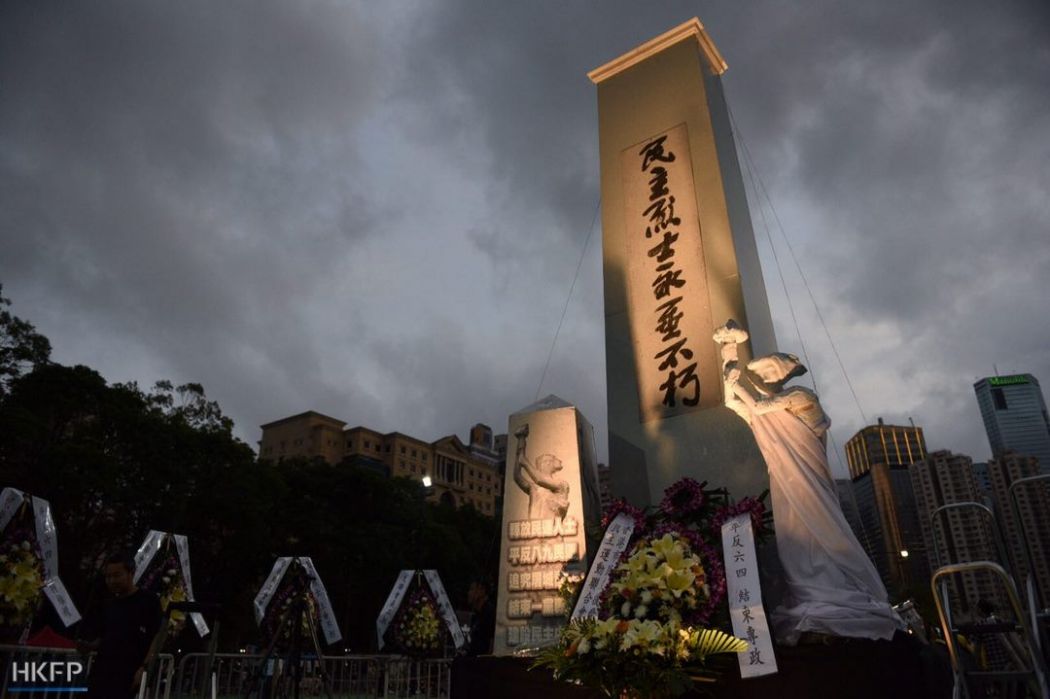The Education Bureau has said that Hong Kong’s 1967 leftist riots and the 1989 Tiananmen massacre will not be included in the revised course syllabus for junior secondary Chinese history classes. Instead, it will be left to teachers and schools to decide whether or not to teach these topics.
The Bureau released its revised curriculum on Monday for a second round of public consultation. Its first draft was criticised by teachers who said that there was too much material on cultural history and not enough on the decline of dynasties.

Under the revised curriculum draft, ancient history and China under dynastic rule would be taught in form one and two. Form three focuses on the modern history of the Republic of China and the People’s Republic of China.
The revision includes 76 per cent political history, with cultural history reduced to 14 per cent, and 10 per cent on Hong Kong history.
Chief Curriculum Development Officer Gloria Chan Pik-wa said: “Should the ’67 riots be taught? It must match the purpose, goal, topic and timing of the course. After teachers see the syllabus, they can give their opinions, and judge.”
“As for ‘June 4th’, although everyone is very concerned, if you flip through the textbook, it is already in the junior secondary textbook.”
See also: Can Hong Kong’s revived Chinese History curriculum serve to cement a national identity?
Leung Yuen-sang, chair of the committee in charge of revising the curriculum, said: “We personally experienced [the riots of] ’67… we will not forget it. But if history is written by completely relying on memory, this is not our standard for devising a syllabus.”

Hong Chan Tsui-wah, the Deputy Secretary for Education, said that the curriculum was meant to provide a framework of key points, and not meant to detail specific events that should be taught.
Meanwhile, Education Secretary Kevin Yeung told a panel meeting at the legislature that some historical events may be “relatively less important,” and asked lawmakers not to make a fuss over the new curriculum: “We hope that there will be a systematic way to present the 5,000 year history of our country. We should not get bogged down on just a couple of historical points.”
In 1967, Hong Kong was rocked by large-scale unrest between leftists and the British establishment in Hong Kong. What began as a minor labour dispute escalated into several months of protests, violence, bombings and murders.
The Tiananmen massacre occurred on June 4, 1989 ending months of student-led demonstrations in China. It is estimated that hundreds, perhaps thousands, of people died when the People’s Liberation Army was deployed to crack down on protesters in Beijing.
‘Not surprising’
Chen Yan-kai, an executive committee member of the Hong Kong Professional Teachers’ Union, said it was “not surprising” that the curriculum glosses over controversial parts of history, as they raised concerns among the current political regime.
According to Apple Daily, Chen also criticised the curriculum for emphasising China, adding that local events which reflected the gradual rise of localism were not included.
Kwong Kin-ming, an academic studying local history, said: “The problem is: why is the curriculum China-centred?… If it was Hong Kong-centred, then why would the ’67 riots be unimportant?”

Democratic party lawmaker Ted Hui also criticised the curriculum for glossing over sensitive events, saying that it was a form of “indirect brainwashing.”
He said that the events illustrated the relationship between China and Hong Kong at the time, and would increase the curriculum’s coverage of Hong Kong history.
The second round of consultation ends on November 30, after which the curriculum will be revised again. It is expected to take effect in the school year of 2020/2021.
Chief Executive Carrie Lam’s first policy address stated that the government will make Chinese history an independent compulsory subject for the junior secondary level starting in the 2018/19 school year.
